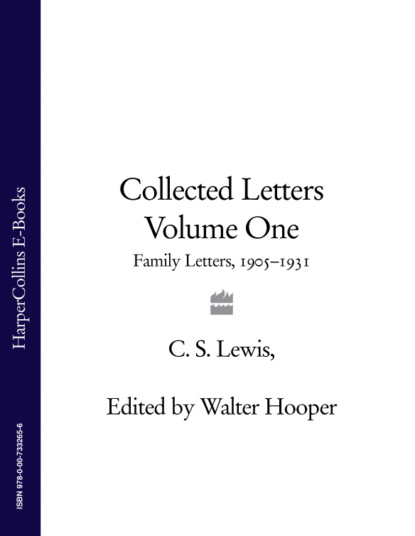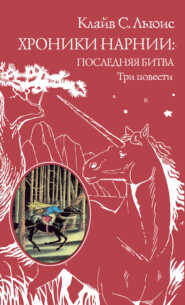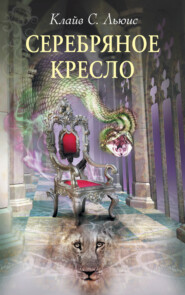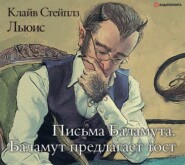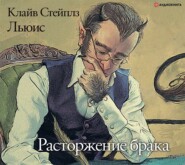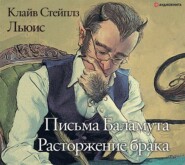По всем вопросам обращайтесь на: info@litportal.ru
(©) 2003-2024.
✖
Collected Letters Volume One: Family Letters 1905–1931
Настройки чтения
Размер шрифта
Высота строк
Поля
‘Clouds instead an ever during dark’
(#ulink_fb746955-630f-5d8d-b694-69e5ba29a3c0)
continual rain, and such bitter cold that on one or two evenings we have been obliged to light the fire: I believe it is just as bad all over England.
I am at present enjoying a new literary find in the shape of Sir Philip Sidney’s Arcadia’, which I got at a venture and found better than I expected: though like De Quincy’s and Southey’s epics, ‘I expect that I enjoy the priveledge of being the sole reader of this work’. Talking about books, I hope you noticed the leader in this week’s Literary Supplement–on Edgar Allen Poe?
(#ulink_435bf656-01e9-500b-b647-2d9356a412a5) I never heard such affectation and preciosity; the man who thinks the ‘Raven’ tawdry just because it is easily appreciated, and says that in ‘The choice of words Poe has touched greater heights than De Quincy’ ought–well, what can we say of him?
I am sorry to hear what you say about Cousin Quartus:
(#ulink_dc584835-29bf-515d-bf2b-5d7c5182aad6) he seemed to be as brave and cheerful as usual last holydays.
By the way I have had to expend 6/6 on a Pindar and a Lucan which K. wanted me to get from London, thinking that Mullan’s would be too slow. If a kind parent would like to refund–!
your loving son,
Jack
TO ARTHUR GREEVES (LP V: 97-8):
[Gastons
28 June 1916]
My dear Arthur,
For some reason your letter didn’t reach me until this morning (Wednesday) so I am afraid that this will be a day late. I have been longing to get to my answer all day: and now that the time is come I hardly know how to collect my thoughts–they have been buzzing so in my head ever since breakfast.
First, ten thousand thanks for the enclosure. You know that I never flatter my friends–in fact my faults are in the other direction: so you may accept as a truth how this first sample of your work has knocked me all of a heap. Really, Galahad, I had no idea you could do anything like this: it is splendid. The only fault I have to find is that there is not enough of it. The idea of all the things round the river being in love with your hero–and I suppose the river too–showing their affection–is beautifully suggestive: I am longing to see it worked out–for by the way, on no account must you think of giving up after so happy a beginning. What I like particularly is the way which–according to the advice of friend Horace–you get straight into the middle of your theme right away, without any such dull descriptions as open Bleheris. The whole description of the river, etc., is done (in my poor opinion) with great skill: it sort of carries you away from the world into a dim, summery dream in some landscape more lovely than reality. Isn’t the very word ‘punt’ very descriptive of summer and cool green reaches?
And now I am going to be so bold as to make a few suggestions: not that I think I am better ‘up’ in such things than you, but because it is good for both parties to be criticised, and I wish you would do the same to me. Well then, I don’t know if it be true with other people, but in my own case, I have always found that if you are in at all good form when you write, corrections made afterwards are usually for the worse. Certainly most of yours are not improvements: for instance in several cases you have changed the word ‘that’ to which, as
that) happened long ago.
which)
Of course it is a small point, but don’t you think ‘that’ is more simple, natural, and dignified than ‘which’? The latter is indeed rather business like. Nor do I see why ‘extremely old’ should be written over the plain ‘very old’. The second point is this: does your own judgement approve the sentence, ‘shook her silvery sheen’? The alliteration, I think, would be a bit daring even in verse, and I am sure cannot be allowed in prose.
Now, I suppose you think me meddlesome and impudent. Well, though perhaps I am given to finding spots in the sun, I still appreciate its brightness: I repeat, though my opinion of you as a friend could not be higher than it was, my opinion of you as an author has risen by leaps and bounds since this morning. You MUST go on with this exquisite tale: you have it in you, and only laziness–yes, Sir, laziness–can keep you from doing something good, really good. By the way, before we go any further, I must say in fairness, that when you find those roses playing a more prominent part in the life of my Bleheris, it is not cribbed from your willow tree! I had thought out my plot–what there is of it–before I left home.
I am very glad to hear that you have bought C. Rossetti’s poems: partly because I want to be able to look at it myself in the comfort of your sofa–mind the springs–and also I am glad you are beginning to read poetry. Which reminds me, a propos of your tale, you should read the bit in Morris’s ‘Jason’ about Hylas and the water nymphs. I think it is in Book II–at any rate you can see from the headings–and it would not take you more than half an hour. As to the illustrated edition of his early poems, I believe we once saw it together in Mullen’s, but so far as I remember, weren’t greatly impressed; or am I thinking of something else? You don’t tell me what you are actually reading at present, for you can’t be living entirely on lyrics: have you finished ‘John Silence’ yet, and what is your final verdict on it?
In the mean time the ‘Arcadia’ continues beautiful: in fact it gets better and better. There has been one part that Charlotte Bronte could not have bettered: where Philoclea the heroine, or rather one of the heroines, is beginning to fall in love unconsciously with a man disguised as a girl: and she does not know the secret: the delicacy and pathos of her wrestlings with a feeling which of course she can’t understand, as told by Sidney are–well I can’t explain what they are like: there is one scene where she goes out by moonlight to an old grove, an haunted place, where there is an altar to ‘the wood gods of old’,
(#ulink_f721c0a8-ef23-5840-9c32-12ef7a331e61) and lies looking up at the stars and puzzling about things, that is equal to if not better than the scene where Jane Eyre wakes up on the moor–do you remember? On the other hand, of course there are parts YOU might not have patience with: in the old style, where people relate their own adventures with no direct bearing on the main story: yet even this, to me, is interesting–so quaint and so suggestive of the old romantic world.
Besides this, I have read nothing lately, except a foolish modern novel which I read at one sitting–or rather one lying on the sofa, this afternoon in the middle of a terrible thunderstorm. I think, that if modern novels are to be read at all, they should be taken like this, at one gulp, and then thrown away–preferably into the fire (that is if they are not in one’s own edition). Not that I despise them because they are modern, but really most of them are pretty sickly with their everlasting problems.
I am glad to hear that you have started illustrating my tale: your criticism about not making long conversations is a very sound one, though I fear I can’t keep up to it. For instance, after this chapter the next two are, I am afraid, taken up with a conversation between Bleheris and the people he meets at an inn. Still, as it is necessary to what follows, you must try and get through it. This chapter is a failure: I particularly wanted to show what sort of a person he is and how he develops, but have only made him ridiculous.
I am interested in what you tell me of the Bronte country. Fancy a real living original of Heathcliffe?
(#ulink_0da4e8ca-95bc-59e1-be2e-cb0289ab0672) What must he have been like.
Now it is time for bed, so good night mon vieux, and don’t forget another instalment in your next letter.
Yours,
Jack
TO HIS FATHER (LP V: 91-2):
[Gastons
30? June 1916]
My dear Papy,
I can’t understand why Kirk has not answered your letter. He never mentioned it to me, and until I heard from you I did not know that you had written: perhaps it has gone astray–like your subscription to the chocolate fund!
At any rate, after reading what you said, I asked him whether a modern language could be substituted as you suggest: he replied that he thought this was so, but pointed out that of course this did not include mathematics, and that the latter would consist of a good deal of graphical work and other things which he–though goodness only knows why–does not feel fit to teach. If the worst comes to the worst, I suppose I could grind mathematics in the holidays: but all things considered I think we should look on the Sandhurst scheme as a “pis aller”
(#ulink_d32b7f56-e37e-54e2-8f7f-4b0228114d31) if it be found impossible to get a commission by influence or any other way.
You see the difficulties of entrance, though not insurmountable, are still serious, and it is well to remember that, as Harding told us, if I get a permanent commission, it may not be easy to leave the army immediately after the war. Do you think we could manage to work the business through our political friends? Kirk assures me that even now this is not difficult, and if it could be done, it would certainly be far the best plan. Failing this, I should suggest some volunteer institution from Ulster if any of these are still in existence.
Since we last wrote, I have been in communication with Oxford: missives have been elicited from Balliol, and I was glad to hear that if you go in for a scholarship, you are not expected to matriculate as well. It is rather a question however whether Balliol should be our mark: in order to prevent it getting the pick of the candidates, there is an arrangement by which Balliol and one or two insignificant colleges stand in a group by themselves outside the ‘big group’ which, like ‘Pooh-Bah’
(#ulink_45acce56-5d98-5443-8b07-5e13a3ac391f) comprises ‘everything else’ worth talking about. Now in each of these two groups you put down the Colleges in the order you wish, and are put into one of them according to your place in the exam. You are of course ‘stuck’ in the group for which you enter. Under these circumstances, unless you are absolutely sure of success, it might be better to leave Balliol alone, seeing that if I miss it I have only a very few fall-backs, and those not of the first water. Tell me what you think? At any rate it is one comfort that Kirk’s talk about matriculation was all moonshine: the scholarship exams take place in December. What between Oxford and the Army I am beginning to think that we would be better advised to sell all we have, take a cottage in Donegal, and cultivate potatoes for the good of the nation. Still, I suppose we really have very little to grumble at.
If it is not strange to say so, I am glad to hear that Dick is safely wounded:
(#ulink_6e213c8a-be70-5c4f-b230-0607818b714f) it is by far the best thing that can happen to a man in the trenches, and the really unlucky ones are those who ‘bear the labour and heat of the day’
(#ulink_1a4f75bd-8a2b-56a9-84a3-fc9a48ba5285) unhurt for over a year–always it would seem in the long run to be killed after returning from a leave.
Things look pretty black at present, don’t they? The North Sea battle, though perhaps not so bad as we thought at first, is certainly a very serious business, and our attitude towards the ‘rats’ was rather that of friend Tim than of the sportsman ‘digging them out’. What exactly will the loss of Kitchener mean?
(#ulink_2e451739-42f7-5ec1-9bad-c6fc841539a1) ‘De mortuis…’
(#ulink_d12f73f5-4326-56ac-8704-82df2641d8ee) now of course, and for my own part I never approved of arm chair criticism.
How noble of poor Bob to give up his sister to the war!
your loving
son Jack





